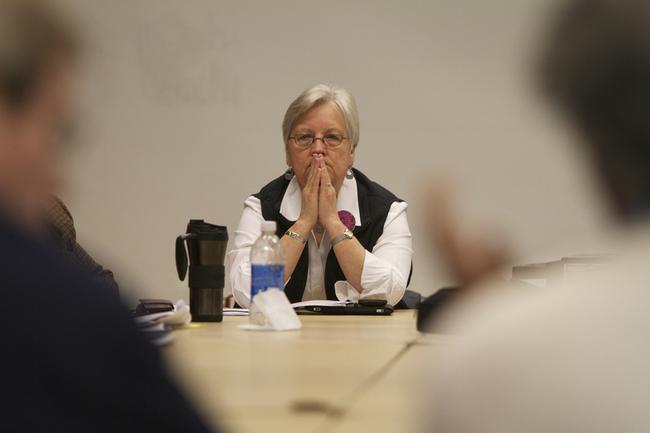Faculty Council discussed a modified version of the diversity course requirement proposal at its meeting Thursday. Recent changes included the addition of study abroad programs to fit the requirement and some specific changes in wording.
The bulk of discussion focused on whether some study abroad programs address diversity and explore social inequalities.
Executive Committee member Victoria Johnson is in charge of the General Education Review, including the Diversity Intensive Course Requirement Proposal.
“It’s not as clear in terms of the social inequality dimension, but if anyone’s ever been in a different country there’s no way you can not get an idea of how fundamentally different other cultures are,” Johnson said.
Professor April Langley has also been active with the proposal.
“I think that we should define what social inequality is and hold all the courses to that criteria,” Langley said.
Faculty Council Chairwoman Leona Rubin presented an idea to solve the disagreements about the suggested course list included in the proposal.
“One possibility is to have the list of possible courses as an appendix instead of part of the proposal, because they are not approved courses but suggested courses,” Rubin said.
A general faculty meeting has been scheduled for early in April. The diversity course requirement is on the agenda for discussion and will be voted on during that meeting.
Rubin also gave a report from the MU Committee on Benefits and Retirement meeting, where the possibility of benefits for domestic partners was discussed. Benefits would not add cost to the university in most cases, and are mainly a policy matter, Rubin said.
NCAA Representative on Student Athlete Progress Lori Franz also presented to the Faculty Council about the academic status of MU athletes.
Franz mentioned an article in The Daily Beast, which recently listed MU as the No. 3 smartest athletic program, behind Northwestern and Notre Dame.
These rankings were based on the Academic Progress Rate of athletes, a rating system that allocates points for eligibility based on current athletes’ progress toward graduating.
MU’s men’s and women’s basketball teams both scored 1,000 on the APR, the highest score possible. MU football scored a 977, well above the minimum requirement of 925.
The Graduation Success Rate for MU’s men’s basketball team has raised some concerns. The GSR is an NCAA assessment measuring the number of athletes in four-year programs that graduate within six years.
The GSR is measured from previous years, and the current rating is at 44 percent for athletes graduating from 2000 to 2003. United States Secretary of Education Arne Duncan declared that teams with low rates of graduation for athletes be prohibited from competing in March Madness tournaments.
Projected GSR rates for MU’s men’s basketball team are up to 67 percent for 2002 to 2005 graduates. Franz told Faculty Council members to note that athletes recruited since Mike Anderson came to MU in 2007 are not included in these numbers.
“Our student athletes have two sets of problems,” Franz said. “One is when we have a student athlete who’s a double major. The other thing that’s really difficult is the kids that do student teaching.”
Other elements that impact the GSR are athletes that transfer to or from MU or leave the athletic program for professional teams.








